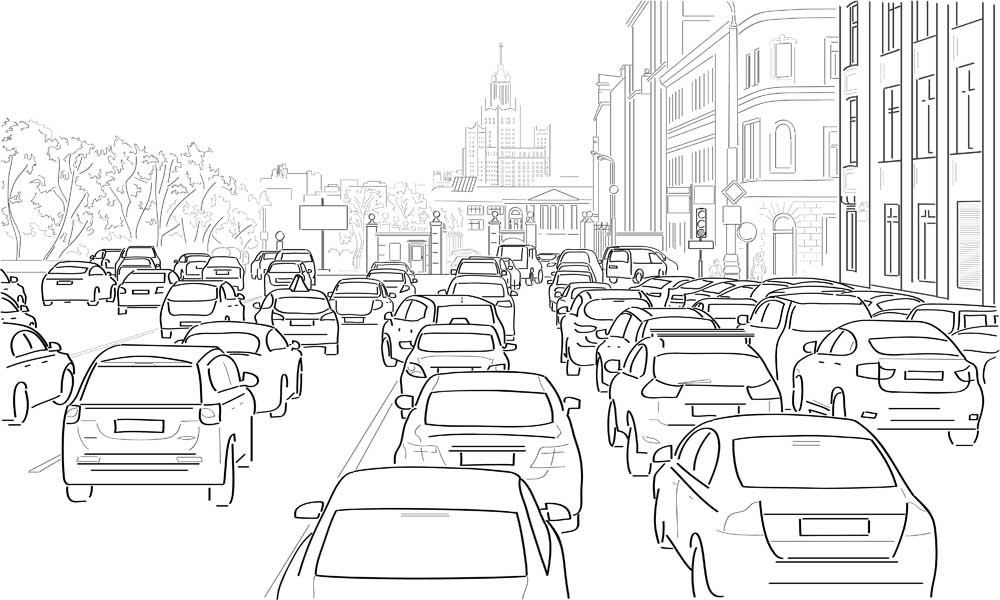Editorial: Oregon’s war on cars aims to make drivers miserable
Published 12:00 am Friday, July 27, 2018

- 123RF
In a recent editorial, we mentioned the “war on cars” being waged in Bend, which is working gradually to update its transportation system plan. As if on cue, an anonymous commenter claimed that there “is no … ‘war on cars’ going on.” Not only is this untrue, but the war that supposedly isn’t happening is an explicit component of state land-use policy.
Consider a set of draft rules that will be taken up in September by the state’s Land Conservation and Development Commission. The rules, which have been under development for months, will guide cities like Bend in the creation of local road plans.
Trending
The draft rules are largely an update of existing rules, says Bill Holmstrom, a transportation planner with the Department of Land Conservation and Development. The existing rules are confusing, he says, and repackaging them will make it easier for cities to understand exactly what they ought to be doing.
Lest there be doubt about what the state’s after, the draft rules require cities like Bend to “establish performance measures and targets … that measure progress toward increasing transportation choices and reducing reliance upon the automobile.” Nope, no war on cars going on at all.
The rules go on to describe the ways in which cities, through the adoption of transportation system plans, ought to conduct their anti-car battles. To this end, the draft rules provide some options.
Cities, for example, may adopt a set of “performance measures and targets” that produce “a significant increase in the availability or convenience of modes of transportation other than the automobile” and result “in a reduction in reliance on the automobile.” These targets must be measurable and reportable to the state.
Alternatively, cities may adopt a per-capita target for vehicle miles driven, which must decline by 5 percent over 20 years.
Cities also may adopt transportation and land use plans that meet state reduction targets for greenhouse-gas emissions. Think more bikes and buses and fewer single-passenger cars.
Trending
Again, the draft rules require cities to send regular reports to state bureaucrats detailing their progress in meeting these anti-car goals.
But wait. There’s more. The new rules call for cities to optimize bus routes by, among other things, restricting on-street parking. Cities also must adopt what the rules characterize as “reasonable parking requirements,” which is planner-speak for restrictions that make parking a real pain in the axle. What better way to nudge people toward alternative “transportation choices” than to make the choice they really want more and more difficult?
To that end, city parking plans created under the rules “must be designed to achieve a 10 percent reduction in the number of parking spaces per capita over a 20 year period.” This can be accomplished by restricting the development of new parking spaces or by requiring that existing parking spaces be converted to other uses. The rules even encourage cities not to require any parking whatsoever for multifamily residential land.
Given the anti-car guidance provided at the state level, you can understand why Bend’s Citywide Transportation Advisory Committee has attracted such interest from groups eager to take up arms against the family four-door. This committee, which will provide recommendations for the update of Bend’s transportation system plan, distinguished itself this spring by producing draft transportation goals that all but ignored cars as well as the guidance provided by the city councilors who’d created the committee.
Alternative transportation options are necessary, including bike lanes, safe walking routes and motorized transportation for people who can neither drive nor pedal. What’s also necessary, yet seemingly in short supply among state policy-writers and local anti-car activists, is the sort of common sense expressed by another anonymous commenter on our recent editorial.
“Like most people in Bend I drive a car to get around,” he or she wrote. “What portion of the Bend population bikes to work & drop off the kids?”
This person speaks for the vast majority of Bend residents who will continue to move around by car for many years. They deserve better than the make-them-miserable treatment prescribed by Oregon’s anti-car (and anti-convenience) planners and activists. The average motorist might not have much of a voice in Salem, on Bend’s transportation advisory committee and perhaps even among city planners, but he or she does have a vote.
Use that vote wisely or buckle up, so to speak, for more traffic jams, less parking and plenty of misery.








